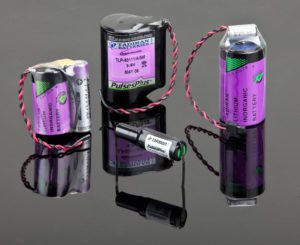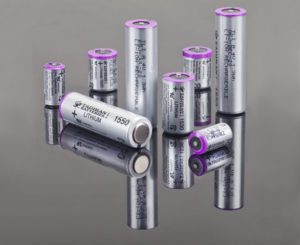From tracking vehicle locations to gathering performance data, telematics systems are important for businesses aiming to optimize operations. However, what many people overlook is the main component powering this technology: the battery.
A reliable power source ensures that telematics devices run smoothly. If you’re looking to maximize efficiency, you should pay attention to your battery choice and quality. The right telematics battery can enhance system performance, minimize downtime, and ultimately lead you toward a better product.
Understanding the Role of Telematics Battery
Batteries are the backbone of telematics systems. They provide the necessary power for sensors, GPS devices, and communication modules to function effectively. Without a reliable telematics battery, even the most advanced technology can fall short.
These systems require constant energy to transmit data in real-time. A weak or failing telematics battery could lead to lapses in connectivity or incorrect readings. This affects operational efficiency but can also hamper decision-making processes.
Moreover, batteries must withstand various environmental conditions. From extreme temperatures to vibrations during transit, they need resilience and durability. Only if you select a quality battery can you ensure that your telematics system remains operational under any circumstances.
Choosing the Right Battery for Better Telematics Performance
Choosing the right telematics battery can significantly enhance performance. Different systems have varying power demands, which is why you need to match these needs with an appropriate battery type.
Consider capacity and voltage first. A higher-capacity battery can support more devices, ensuring consistent data transmission without hiccups. Make sure that the available capacity is estimated for the End of Life conditions, as prolonged operation at high temperatures can significantly reduce the available capacity.
Voltage compatibility is crucial, too. Mismatched voltages may lead to system failures or inefficient operation.
Next, think about temperature ranges. Telematics devices often operate in challenging environments. Battery for high temperature or low one, depending on the needs, will perform better and last longer in the field.
Finally, examine recharge cycles and lifespan. A battery that supports numerous charge cycles reduces replacement frequency, which saves time and money over the long run.
Best Telematics Battery Type
Telematics systems often operate in demanding environments, requiring batteries that can withstand various challenges. Here are the best telematics battery types:
1. Lithium-ion (Li-Ion) Batteries
Lithium-ion batteries are popular for telematics systems due to their high energy density, long lifespan, and rechargeability. These batteries are well-suited for applications requiring frequent charging, and weight and size are important considerations.
Advantages:
- High Energy Density: Provides more power in a smaller form.
- Rechargeable: Can be recharged hundreds of times, making them cost-effective over the long term.
- Long Lifespan: Typically lasts several years with proper care.
- Temperature: Tadiran produces special li-ion batteries that can survive and even charge at extreme temperatures reaching +135°C.
- Lightweight: Ideal for applications where weight is a factor.
2. Nickel Metal Hydride (NiMH) Batteries
A nickel metal hydride battery offers a balance between cost and performance. They are less prone to memory effects compared to older battery technologies, which means they retain their full charge capacity over time. At the same time, NiMH batteries have low voltage and limited power capability at low temperatures.
Advantages:
- Moderate Energy Density: Offers a good balance between energy capacity and cost.
- Environmentally Friendly: Contains fewer toxic materials than traditional batteries.
- Good Performance at Moderate Temperatures: Operates effectively in a wide range of temperatures.
3. Primary Lithium Batteries
Primary lithium batteries, such as lithium thionyl chloride (Li-SOCl2) batteries, are commonly used in telematics systems that require long-lasting power without recharging. These batteries are ideal for applications where the system is deployed in remote locations or where maintenance access is limited. As a reliable partner with years of experience in industrial battery pack production, we can offer the perfect fit when it comes to this telematics battery type.
Advantages:
- Long Shelf Life: Can last up to 10-25+ years, depending on usage.
- High Energy Density: Provides consistent power over a long period.
- Excellent Temperature Tolerance: Performs reliably in extremely hot temperatures and can work as a low temperature battery.
The Impact of Battery Quality on System Uptime
A high-quality battery ensures consistent power delivery, which is essential for real-time data transmission and device responsiveness. When batteries degrade, they can cause unexpected downtime. This interruption affects the data flow and decision-making processes that rely on accurate information.
Moreover, lower-quality batteries are often prone to voltage fluctuations. These instabilities can lead to erratic behavior of telematics devices, resulting in inaccurate readings or complete failure.
Investing in superior batteries means fewer disruptions and enhanced reliability. This translates into improved operational efficiency across fleets or remote assets.
Long-Life Batteries: Reducing Maintenance and Downtime
A long life battery can significantly improve telematics system efficiency. These batteries are designed to endure longer operating periods between charges, which directly translates into reduced maintenance time and expenses. By minimizing the frequency of battery replacements, you lessen interruptions in service and increase system availability.
Furthermore, long-life batteries often have enhanced durability features that withstand various environmental conditions. This resilience is crucial for systems deployed in rugged or remote locations where maintenance access may be limited.
Choosing the right battery is crucial for your product, reputation, and earnings. This is where Tadiran Batteries can help. Contact us today, and we’ll give you an estimate.
Telematics Battery – FAQ
What is Telematics in EV?
Telematics in EVs is the technology that combines telecommunications and informatics to monitor and manage the vehicle’s performance, battery health, route efficiency, and diagnostics in real time, enhancing the overall driving experience and efficiency.
What is a Telematics Battery?
Battery telematics is the system that monitors and manages the performance, health, and usage of a battery, particularly in electric vehicles, by collecting and analyzing data on charge levels, temperature, and overall battery condition.
Playing the article for the visually impaired:



















